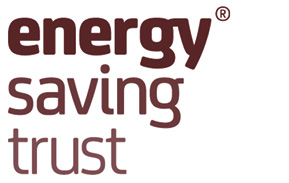Energy for efficiency much needed


While Brexit and the Stormont impasse have dominated the political headlines for some time, we shouldn’t forget other pressing issues on the Government’s to-do list. On the energy front, we need a long-overdue review of the 2010 Strategic Energy Framework to set in place the policies that will drive the energy agenda for security of supply, infrastructure and sustainability. Until we have that clear vision, energy policy is frozen in time.
In the 2010 Framework, Arlene Foster, the then Minister of Enterprise, Trade and Investment stated: “Energy efficiency will be required from two perspectives – from the generation, distribution and supply of energy to customers and through more efficient end use by customers. The development and management of our future electricity infrastructure is therefore a key opportunity for improving our energy efficiency.”
Should Government, as part of a new Strategic Energy Framework, subsidise cuts in energy demand? Investing in energy efficiency to reduce demand is the idea that the energy efficiency is the ‘first fuel’. In simple terms, the energy we don’t use is the cleanest and cheapest. Reducing energy consumption will take pressure off supply and will be critical in meeting our energy needs in the coming decades. As we watch fuel costs start to rise, the benefits of energy efficiency will become easier to see.
At a domestic level, electricity consumption, the fabric of the home and heating are all part of the equation. To deliver a ‘first fuel’ approach, Northern Ireland will need a broad programme of support for efficient heating systems and insulation to assist those most in need. Fuel poverty is still an issue and many families are struggling with energy bills yet many do not fit neatly into the category of ‘most fuel poor’ where there is government support available. A programme to help all households will ensure that support is there for every family living in a cold home or struggling with bills.
This broad programme of support for energy efficiency shouldn’t be just about helping families who are struggling with bills. We also need to unlock opportunities for households who can afford to make their own investments in energy efficiency. The reality is, householders do not put energy efficiency at the top of their wish list. It can be disruptive to make improvements to your home and so people are going to need an incentive. The incentives should be combined with consumer engagement. Energy Saving Trust research shows that homeowners are most likely to engage when they are undertaking home improvements like an extension or loft conversion. We have long-hoped for a comprehensive support mechanism to encourage domestic energy efficiency, underpinned by good quality advice, understandable information, and importantly, market assurance.
Beyond financial considerations, when it comes to what’s holding back domestic energy efficiency, the Energy Saving Trust has noted the following reasons:
Firstly, finding out about and buying new technologies can be difficult when there are few companies in the market, few people to turn to for advice – whether this is family, neighbours or friends – and also relatively little on the internet that explains things in a consumer-friendly way.
Secondly, homes are complex energy systems; householders can struggle to understand how different home energy improvements relate to each other and which actions they should prioritise.
Finally, there’s the rented sector information gap where landlords fail to invest in energy efficiency because they think, rightly or wrongly, that tenants don’t value the benefits enough to pay a higher rent for a warmer home.
Now is the time to place energy efficiency at the heart of energy policy in Northern Ireland, without it the energy challenges of the coming decades will be a lot harder.
Patrick Thompson
Operations Manger
(NI)
Energy Saving Trust
E: patrick.thompson@est.org.uk
T: 028 9072 6006






